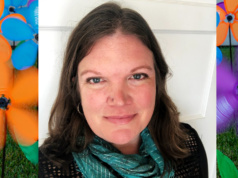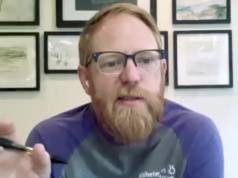This hour with Dementia expert Faith Marshall of Awakenings Hypnosis & Coaching deals with how to communicate with loved ones facing Alzheimer’s and dementia. This segment focuses on what loved ones pick up on inadvertently, sometimes a repetition of a diagnosis that in most cases isn’t positive. Remembering to talk with them, not about them, is key.
And Faith, we are in the conversation, and certainly we talked a little bit about. You know how we keep that respect factor and how we keep that, and you know in our last segment I just brought up something is like walk around the block deal with. You know your own stuff, your check, your ego at the door, all these things, but it really comes down to the fact of you know how do we respect our loved one and and going forward? Because I think that’s a really. You know key scenario in communicating with the lock one that has all timers. Is it not?
-Yes, very much so I experienced this with my mom and I’m studying to be a dementia consultant where I can actually help families with a lot of these steps directly. I’ve learned so much in this year. Long Training that I’ve been in I’m excited to have the tools to help them, and there is so much that the patient picks up on that. We are not aware of. We might have just come home with the doctor from the doctor. We’ve got all the information that the doctor has shared were on the phone with our brother, passing on all that information, as if the patient isn’t present and the patient is getting that repetition of hearing that information that, in most cases, isn’t positive m. So when we’re with the patient, we need to respect them and we need to talk to them, not about them. We need to talk with them and as if they are understanding what we’re saying, even if we have it stuck on our head, that they don’t right, and the other thing to this, too, is like you talked about in the last episode, our energy.
When we’re talking to our brother about what the doctor said, isn’t necessarily a positive energy. So some of those conversations need to happen. They may not be some of the parts of those conversations may not be best served for the patient having it with the patient about the patient without engaging them. Now, some early stage, they’re right there with you. They remember what the doctor just said and you’re talking to them and you’re respecting their feelings about it. Verses, just focusing on the statistics or all the things the medical professionals are geared up to provide for us is not always positive, so we always want to instill hope, yeah and, I think part of how families deal with it is like, for example, a doctor might say, you know: Mom can only have thick and licquet liquors because she can’t swallow, but on the other hand, the flip side of that is the fact that well guess what you know: Mom wants water, and so it’s up to you, if you are their power of attorney or dealing with, that is to be the ER advocate, because sometimes they can’t speak for themselves. So to listen for key things that when you know that person- and when you realize that you know mom doesn’t like you know orange juice and you keep giving it to her and she doesn’t like it. It’s not that she’s refusing to eat. But again it’s paying attention to the details.
I think is one of the things that a lot of us we just get so busy in our days that we don’t think about what are the things that are most important to our left ones. And it’s not about us, it’s not about what we think it’s about. It’s their life still and I think that’s something that sometimes we lose track of. Wouldn’t you so that’s true yeah. Well, I think we get caught up in focusing on the safety and we get caught up in focusing on their nutrition and will you need vitamin C. So the most lasoca logical choice is the orange juice, but we forget that mom prefers great for juice or you know whatever the alternative is somebody told us to do this, so we’re going to do it right and so things just need to be co operative and there’s a lot of thought that has to go into even opening a conversation with them about something and true we’re we’re tired as a caregiver, and the last thing we want to do is negotiate in our head. How to present this, but there’s tools available.
There’s people that can help with those conversations and so that you can focus on yourself and your energy and how you’re presenting this, and I think I think families are trying their hardest and doing their best, but there’s a lot of this stuff that they just don’t know. I didn’t you know you didn’t talk about the patient as her. You talked about you know, Korin or mom, and trying to be open with them about. I want to help you with this. So what? If? What? If we try this and being co operative and being in a loving way and not combative? And basically you know what’s happening today in the news- is not what’s on their mind. No, no and it’s interesting to that. You know when you brought up a really important part, so sometimes we think families that’s most most important, is their safety or that we’re really accurate with information. So when we talk with how’t care, professional or whatever I remember you know, my mom would say something totally that wasn’t true. You know, but it was in her mind. It was true, and I remembered correcting her and and it’s like that’s not what you do it’s like, and I learn things things to a coach.
Like you, someone tol me, you know the truth is pretty much irrelevant when you have altemera it’s their perception, yeah and so it’s learning to again it doesn’t always have to be. You know it doesn’t the details always don’t have to be correct and an understanding that piece that sometimes you know we may view things as a different way than than your loved one is, but their reality is their reality and and sometimes that can get lost in the in the you know, picture. I think the other part of of you know. Respect factor is how many people say mom, you know, remember, remember when we did X, I Z well, mom may not remember so it makes yer feel bad or dad do you remember you always like to go fishing to Lake Land and dad doesn’t have any memory of that, because that was only you know a long time ago that he may have lost that piece and in understanding that when you start asking those questions, it can put them in a in a difficult situation because they feel like they’re left out, because they don’t remember exactly, and I also think that the word remember is a trigger. It is to form a block because they’ve been told that they can’t remember they’re realizing they can’t remember so. That word is not really a positive reinforcement. It’s more like we used to go fishing at that lake, that really pretty lake that you know Blah Blah Blah. Was it Lake Shalan and and see?
If, if that, that’s a great way to do it, yeah using the word remember or people would come to visit and say: Do you remember my name? Well, I would probably mess that one. I know exactly exactly yeah and and- and the thing is, is that again, just remembering, I think the other thing is sometimes it’s easier to, like you said, give them all the information up front and then just say: What do you think mom or what do you think dad how you know how about if we go to lunch, which is that a good you know? What do you think? So, it’s all of a sudden, it’s making it’s an inclusive mindset. Yeah feeling like this is where we are today, and you know how about, if you know we do this together right. So we, what are you hungry for I’m hungry for fish and chips hint hit yeah, but but it’s like it’s like that, helps to get them to. Maybe you know activity that you want to do and yeah yeah and the other you know we’ve talked about it in other episodes. The other factor to all of this is that they’re they’re, your mom and you you’re, seeking your seeking information from them, and we have that fear that they’re, forgetting us and all those underlying things that unfortunately just need to be checked at the door for the moments and talking to friends and helping clear that out without involving the patient themselves and just have the focus be on the patient, and I think so many of us just want to do what’s right, but we don’t have the tools to know what that is right, and we don’t know that talking to our brother on the phone about what the doctor said, all the negative things is the wrong thing to do. We feel like we’re, including MOM, we’re not talking about or behind her back Truso, it’s dance, it’s truly a dance.
I think too, the way you know the way we look at all of this and as we’re moving forward is to make sure that we’re always thinking about inclusion rather than exclusion, and I think some of the things that you know family discussions may go on behind the scenes, but realize that there’s things that we can always do to respect that relationship and to make sure that mom or dad or you know, aunt or uncle or whatever is included in decisions to what they’re capable of- and I think that’s really. We really where we’re at is understanding that you know we can do a lot of the things behind the scenes where we’re not demeaning them in front of them, because even you know I have heard like you said I, if your loved one is stage five six, you know in all timers they’re still going to pick up certain dialogue and that’s important and in terms of our senses as a hospice volunteer. I’ve always taught people that the hearing is the last to go so their my eyes may be closed. They can’t hear you, but they can’t communicate with you, but they can still hear you and what you’re communicating to them shouldn’t be the negative of pulling the plug or whatever is going to got to happen. It should be the positives of you, know, accepting and mom. We love you and if you want to go, you can go ready, a whole other episode, but just the fact that don’t forget that they can still hear you whether you think they can or not, because the hearing is always somehow miraculously conscious.
That’s a really good point that you bring up and, and certainly one of the things you brought up to was energy, and I think what I would love to talk about. Our next segment is how to change the energy when, if you’re dealing with an antagonistic you know, maybe Dad’s antagonistic dad, doesn’t want to move anything like that. What can we do to change that? And so, everyone, Faith will be right back right after this. -And that’s one of my most exciting topics to talk about.
We would like to thank you for joining us in this podcast faith is here to support you and your family on this journey. She will help you to come together in harmony, creating the best team and advocating for your loved one’s care, so call Faith at 855-363-2484 to receive a $200 gift card just by mentioning that you’ve heard these podcasts.











